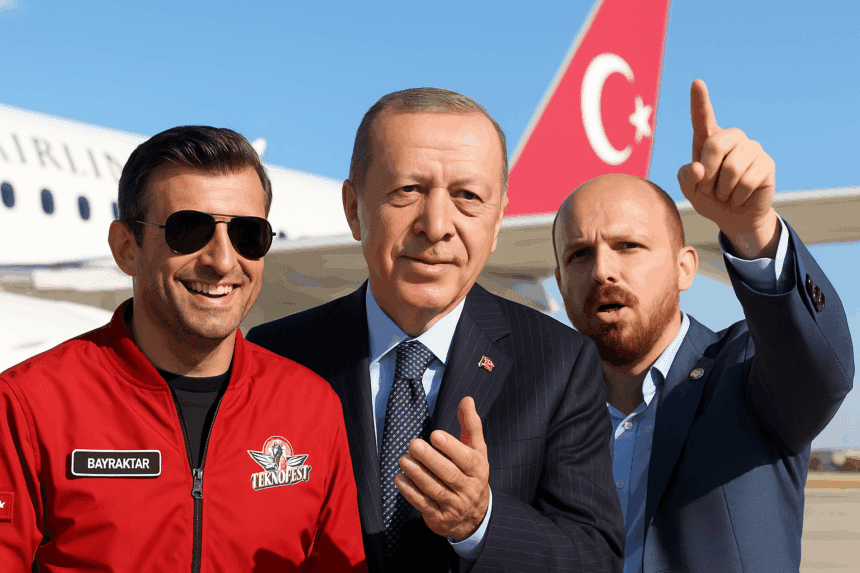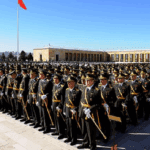Turkish President Recep Tayyip Erdoğan announced on Thursday that he has no intention of running for office again, emphasizing that his proposed constitutional reforms are aimed at the nation’s future, not his political survival.
“We want the new constitution not for ourselves but for our country. I have no interest in being re-elected or becoming a candidate again,” Erdoğan told reporters aboard his plane returning from Hungary, according to state-run Anadolu Agency.
The president called for the swift creation of a “civilian” constitution to replace the current charter, which was drafted under military rule following the 1980 coup. “Let’s establish our commissions, create the civilian constitution as soon as possible, and present it to our nation,” Erdoğan said. “Let it be both national and local. Let Turkey see such a constitution.”
Names Emerge in Succession Talk
Erdoğan presents the constitutional reform as a legacy project. However, News about Turkey (NAT) points out that the question of succession is still uncertain. With the next presidential election in 2028, potential successors include Bilal Erdoğan, his son, a prominent figure in conservative educational foundations, and Selçuk Bayraktar, his son-in-law, who is the chief architect of Turkey’s domestic drone program.
Though neither figure has confirmed political ambitions, both command significant public attention and are seen as aligned with the ideological direction Erdoğan has established over two decades in power.
Constitutional Reform or Power Reset?
Erdoğan’s statement has done little to silence speculation that the reform effort could ultimately serve to reset presidential term limits or enable a carefully managed political transition. Under the current constitution, adopted after the 2017 referendum, a president may serve only two terms. Erdoğan began his second term in 2018.
However, legal ambiguity around the status of the first term—under the old parliamentary system—has already been used to justify his 2023 candidacy. Any further extension would likely require a constitutional amendment or early elections, both of which would demand either a supermajority in parliament or a national referendum.
Earlier this year, Erdoğan signaled openness to running again if the political dynamics shifted, saying during a public event: “If you’re in, I’m in too.”
Opposition Challenges and Economic Pressure
Opposition parties, particularly the Republican People’s Party (CHP), have pushed for early elections. However, Erdoğan dismissed these calls, stating: “If they spend the time they waste on early election calculations on serving the nation, maybe they can find a way to enter the hearts of the nation.”
The CHP’s leading candidate remains detained on corruption charges, which he denies. Meanwhile, Turkey continues to struggle with severe economic challenges, including high inflation, rising costs of living, and declining household purchasing power.
Uncertainty on Kurdish Rights
A key question left unanswered is whether Erdoğan’s constitutional proposal will include provisions addressing the demands of Turkey’s Kurdish minority. The Kurdistan Workers’ Party (PKK), recognized as a terrorist organization by Turkey, the EU, and the U.S., has indicated it would be willing to lay down arms if the constitution allowed for legal political representation—a demand strongly opposed by Turkish nationalists.
Government officials have framed the constitutional process as part of the effort to build a “terror-free Turkey” and bring an end to the decades-long conflict, which has claimed tens of thousands of lives.
Legacy or Controlled Transition?
Erdoğan’s allies argue that the president’s primary goal is to cement his legacy through institutional reform rather than pursue further political office. However, the timing and context of his remarks—along with continued hints at flexibility—have fueled speculation about whether this is a sincere exit announcement or the start of a tightly managed succession plan.
As constitutional deliberations move forward, the political landscape is likely to remain dominated by two key questions: whether Erdoğan truly intends to step aside—and, if so, who will inherit the political machine he has built.
By: News About Turkey (NAT)



